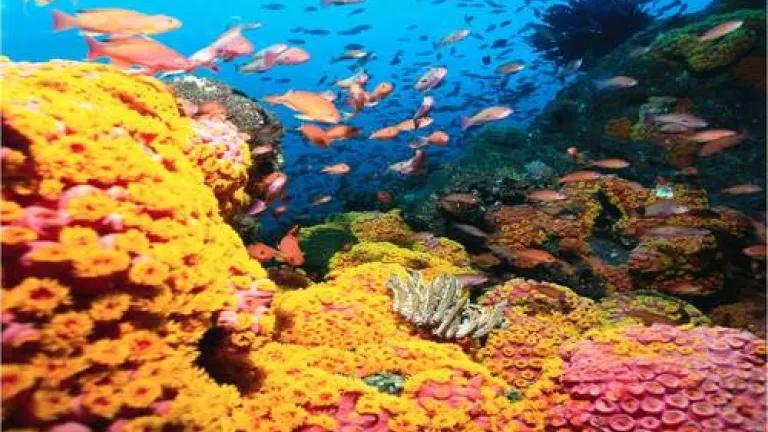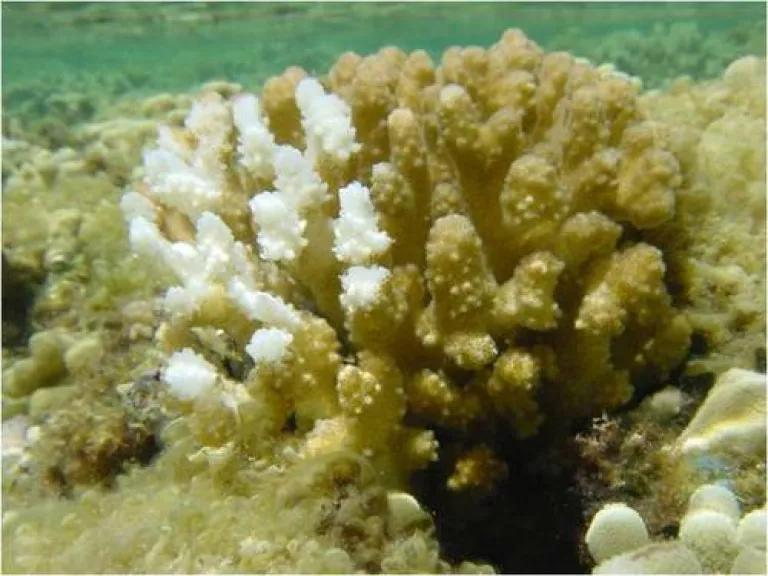
A front page story in the New York Times this week provided another stark reminder that global warming is already changing our world. In addition to the record heat waves, deadly floods, and dangerous wildfires of this summer, we must now add another indicator of climate disruption: widespread coral bleaching.
Scientists have found that this year’s intense heat is endangering tropical coral reefs—diminishing the ocean’s ability to produce food and threatening the economic vitality of tropical coastal regions worldwide.
Most of us think of coral reefs as brightly colored treasures of marine life.

This would be only the second global die-off in history. The heat waves of 1998 resulted in the death of 16 percent of the world's coral reefs; a full recovery has not occurred.
One of the photos featured in the New York Times article showed coral in the Flower Garden Banks along the Texas-Louisiana border. I first learned about that vibrant and beautiful area in the late 1970s, when marine scientist Elliot Norse contacted NRDC about his campaign to protect the Flower Garden Banks. Thanks to his and others’ efforts, the area was designated as a marine sanctuary—the equivalent of a national park in the water. Yet even that designation can’t protect its stunning coral for the impacts of global climate change.
As dire as the coral bleaching predictions sound, they are only part of the story. Coral reefs also suffer the threat of ocean acidification, a second consequence of rising carbon dioxide emissions. ACID TEST, a film produced by NRDC and narrated by Sigourney Weaver, vividly illustrates this emerging crisis. (You can watch the film here.)
As the film explains, approximately one quarter of all carbon dioxide emissions are absorbed by the oceans. Since carbon dioxide becomes an acid in water, the seas are becoming more acidic. If we continue to pollute, as we are now, the oceans will become corrosive to corals by mid-century. By then, chemical and physical erosion will exceed coral growth.
One of the scientists featured in ACID TEST believes we could be facing the loss of most coral reefs in the next 50 years. Such a loss would deliver a major blow to fishing and diving industries, never mind the marine life that depends on reefs for sustenance.
Scientist’s warnings are clear. If we do not act now by reducing our carbon emissions, tropical corals may well be one of the first large-scale casualties of our addiction to oil.
Changes are happening all around us. It’s time for our political leaders—at home and abroad—to feel the urgency that is staring them in the face and start shifting to cleaner energy.
